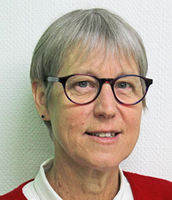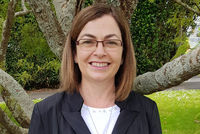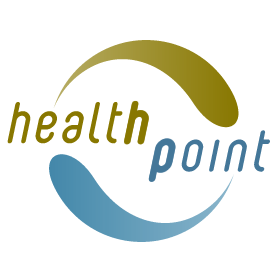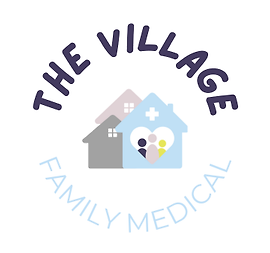Central Auckland > GPs / Accident & Urgent Medical Care > Auckland PHO >
The Village Family Medical
General Practice (GP) Service
Today
8:00 AM to 5:00 PM.
Description
Formerly known as 'Elstree Ave Family Drs'
We are a general practice aiming to provide quality healthcare to you and your family, with an emphasis on health education and preventative medicine.
Our clinic is located at the old University of Auckland - Tamaki campus at 265 Morrin Road, St Johns 1072, Building S1.
Consultations are by appointment only. Our standard consultation time is 20 minutes. Please discuss with reception if you require a longer consultation.
We have comprehensive wellbeing programmes to support all of your health needs.
Online bookings and patient portals are available. Please phone reception for details.
We partner with Practice Plus to provide virtual GP services, as an extension of our regular medical centre team.
We are a Southern Cross Health Society affiliated provider.
Staff
Nurse Practitioner
- Angela Moananu
- Sailau Lote-Onosemu
What are Nurse Practitioners?
Nurse practitioners are highly-skilled nurses who have advanced education and clinical training and have completed a master’s degree. They often work in rural areas and underserved communities to ensure all people in Aotearoa New Zealand have access to healthcare.
Some nurse practitioners work in general practice clinics and some run their own clinics. They can diagnose health conditions, order tests and prescribe treatments and medications within their area of expertise. If you have a nurse practitioner in your area you can book an appointment with them as you would with your GP.
Read more about nurse practitioners
Registered Nurse
- Maureen Edwards
- Diane Knock
- Erica May Tudayan
Healthcare Assistant
- Evelyn Espanta
Health Improvement Practitioner
- Hazel Matthews
Dietitians
- Toni Mitchell
- Stephanie Shens
Practice Manager
- Alison Drennan
Admin Manager
- Tracey May
Admin/Receptionist
- Ta Tukunga
- Priscilla Yiu
- Serena Ganesan
Doctors
-

Dr Nicola Baillie
General Practitioner - Vocationally Registered
-

Dr Carolyn Elley
General Practitioner - Vocationally Registered
-

Dr Donna Lahood
General Practitioner - Vocationally Registered (not taking new enrolments)
-

Dr Ssu-Yu Lin
General Practitioner - Vocationally Registered
Ages
Adult / Pakeke, Child / Tamariki, Older adult / Kaumātua, Youth / Rangatahi
How do I access this service?
Enrolled patients, Make an appointment, Website / App
Enrolling new patients
Yes
This practice is welcoming new patients to enrol.
Great News! Yes, we have open our books back up for new patient enrolments. Please click on link and complete enrolment form. Enrolment Form Link.
Alternatively, you can call us on 09 528 3323 option 1 and speak to reception if you prefer a hard copy form.
Please note we are NOT taking casual pateint enrolments at this time. When completing online enrolment form please make sure you select 'New Patient Enrolment'.
Fees
Enrolled Patient Fees - effective from 7th April 2025
| Age Range | Without CSC | With CSC |
|---|---|---|
| Under 6 years | Free | Free |
| 6 to 13 years | Free | Free |
| 14 to 17 years | $30.00 | $13.50 |
| 18 to 24 years | $42.00 | $20.00 |
| 25 to 44 years | $56.00 | $20.00 |
| 45 to 64 years | $56.00 | $20.00 |
| 65+ years | $48.00 | $20.00 |
Fees and Charges Categorisation
Fees apply, Partial fees apply
Hours
8:00 AM to 5:00 PM.
| Mon | 7:00 AM – 5:00 PM |
|---|---|
| Tue | 8:00 AM – 5:00 PM |
| Wed | 7:00 AM – 5:00 PM |
| Thu – Fri | 8:00 AM – 5:00 PM |
After Hours : Phone GP practice and follow instructions. You will be transferred to an after hours service who will direct you.
Consultations are by appointment only. Our standard consultation time is 20 minutes (not 15minutes)
Public Holidays: Closed Auckland Anniversary (26 Jan), Waitangi Day (6 Feb), Good Friday (3 Apr), Easter Sunday (5 Apr), Easter Monday (6 Apr), ANZAC Day (observed) (27 Apr), King's Birthday (1 Jun), Matariki (10 Jul), Labour Day (26 Oct).
Christmas: Open 22 Dec — 24 Dec. Open 24 Dec (7:00 AM – 3:00 PM). Closed 25 Dec — 4 Jan. Open 5 Jan — 9 Jan.
Preferred urgent care clinic out of hours: White Cross Lunn Ave - Urgent Care & GP.
Languages Spoken
English, Tongan, Samoan, Tagalog, Cantonese Chinese, Hindi
Services Provided
Our GP practice has team members who work alongside your doctor and nurses to provide you with a range of mental wellbeing supports and tools. These team members may include Health Improvement Practitioners (HIPs), Health Coaches and Support Workers. View the following link for more information about wellbeing support in general practice and the national Access & Choice programme.
Our GP practice has team members who work alongside your doctor and nurses to provide you with a range of mental wellbeing supports and tools. These team members may include Health Improvement Practitioners (HIPs), Health Coaches and Support Workers. View the following link for more information about wellbeing support in general practice and the national Access & Choice programme.
Our GP practice has team members who work alongside your doctor and nurses to provide you with a range of mental wellbeing supports and tools. These team members may include Health Improvement Practitioners (HIPs), Health Coaches and Support Workers.
View the following link for more information about wellbeing support in general practice and the national Access & Choice programme.
Immunisation is the safest and most effective way to provide protection for you and your tamariki’s health. For more information view the NZ immunisation schedule.
Immunisation is the safest and most effective way to provide protection for you and your tamariki’s health. For more information view the NZ immunisation schedule.
- Pregnancy vaccinations
- Childhood immunisation programme
- 45 year old vaccinations
- 65 year old vaccinations
- Adult flu vaccine
- Child flu vaccine
- Diphtheria / Tetanus / Pertussis (whooping cough) vaccine
- Human Papillomavirus (HPV) vaccine
- Measles / Mumps / Rubella (MMR) vaccine
- Meningococcal vaccine
- Shingles vaccine
- Catch-up missed vaccinations
Immunisation is the safest and most effective way to provide protection for you and your tamariki’s health. For more information view the NZ immunisation schedule.
Your GP's surgery is far more than a place to go when you are feeling unwell and needing a quick cure. The doctor who sees you has gone through an extensive medical training to equip her or him to help children and adults of all ages with a range of physical and emotional difficulties. GPs are at the centre of the healthcare hub and will be aware of services and expertise that are available locally and further-a-field. GPs are also aware of the link that stress and unhappy life events have on physical health so know when to suggest a talking therapy rather than medication.
Your GP's surgery is far more than a place to go when you are feeling unwell and needing a quick cure. The doctor who sees you has gone through an extensive medical training to equip her or him to help children and adults of all ages with a range of physical and emotional difficulties. GPs are at the centre of the healthcare hub and will be aware of services and expertise that are available locally and further-a-field. GPs are also aware of the link that stress and unhappy life events have on physical health so know when to suggest a talking therapy rather than medication.
Your GP's surgery is far more than a place to go when you are feeling unwell and needing a quick cure. The doctor who sees you has gone through an extensive medical training to equip her or him to help children and adults of all ages with a range of physical and emotional difficulties. GPs are at the centre of the healthcare hub and will be aware of services and expertise that are available locally and further-a-field. GPs are also aware of the link that stress and unhappy life events have on physical health so know when to suggest a talking therapy rather than medication.
Primary care practices offer a range of services and are able to deal with most minor accident care. If they are not able to deal with an injury they will refer on to the appropriate service.
Primary care practices offer a range of services and are able to deal with most minor accident care. If they are not able to deal with an injury they will refer on to the appropriate service.
Primary care practices offer a range of services and are able to deal with most minor accident care. If they are not able to deal with an injury they will refer on to the appropriate service.
Minor surgery is commonly provided in primary care practices, providing fast, competent removal and biopsies of skin lesions. Other services include cosmetic work such as removal of benign moles and skin tags. Ingrown toenail surgery is also commonly provided. These conditions do not need to be referred to a hospital, perhaps saving you a long wait or a cancelled appointment when a more serious case takes priority.
Minor surgery is commonly provided in primary care practices, providing fast, competent removal and biopsies of skin lesions. Other services include cosmetic work such as removal of benign moles and skin tags. Ingrown toenail surgery is also commonly provided. These conditions do not need to be referred to a hospital, perhaps saving you a long wait or a cancelled appointment when a more serious case takes priority.
Minor surgery is commonly provided in primary care practices, providing fast, competent removal and biopsies of skin lesions. Other services include cosmetic work such as removal of benign moles and skin tags. Ingrown toenail surgery is also commonly provided.
These conditions do not need to be referred to a hospital, perhaps saving you a long wait or a cancelled appointment when a more serious case takes priority.
Each GP surgery or primary care practice will have its own procedure for repeat prescribing but the following rules are common to most, if not all. Patients who are well-known to the practice who have a stable condition like asthma, hypertension or diabetes could be allowed to get a repeat prescription for up to six months. Repeat prescriptions are never given to patients who are not known to the practice and there is probably a blanket ban on repeats for narcotics and other drugs that could be misused as doctors are expected to monitor these drugs carefully. Discuss with the doctor at your appointment. The charge is $5.00 to $20.00 for prescription to be emailed to the chemist.
Each GP surgery or primary care practice will have its own procedure for repeat prescribing but the following rules are common to most, if not all. Patients who are well-known to the practice who have a stable condition like asthma, hypertension or diabetes could be allowed to get a repeat prescription for up to six months. Repeat prescriptions are never given to patients who are not known to the practice and there is probably a blanket ban on repeats for narcotics and other drugs that could be misused as doctors are expected to monitor these drugs carefully. Discuss with the doctor at your appointment. The charge is $5.00 to $20.00 for prescription to be emailed to the chemist.
Each GP surgery or primary care practice will have its own procedure for repeat prescribing but the following rules are common to most, if not all. Patients who are well-known to the practice who have a stable condition like asthma, hypertension or diabetes could be allowed to get a repeat prescription for up to six months. Repeat prescriptions are never given to patients who are not known to the practice and there is probably a blanket ban on repeats for narcotics and other drugs that could be misused as doctors are expected to monitor these drugs carefully.
Discuss with the doctor at your appointment. The charge is $5.00 to $20.00 for prescription to be emailed to the chemist.
Sometimes your doctor needs to take a sample of blood or urine either to discover what is wrong with you or to measure something in your blood so that the right medication is given to you. These tests could be anything from blood sugar to a full blood count or a sample of tissue to test for cancer. While urine can generally be tested in the surgery, blood and other specimens are usually sent away for testing at a laboratory. Most results come back within 48 hours unless a very rare test is needed which has to go to a specialist lab further away when it might take a little longer. Please discuss with your doctor how you wish to be informed of results. Please note that patient portals are now available for over 16's to access blood results. Please contact reception to enable this.
Sometimes your doctor needs to take a sample of blood or urine either to discover what is wrong with you or to measure something in your blood so that the right medication is given to you. These tests could be anything from blood sugar to a full blood count or a sample of tissue to test for cancer. While urine can generally be tested in the surgery, blood and other specimens are usually sent away for testing at a laboratory. Most results come back within 48 hours unless a very rare test is needed which has to go to a specialist lab further away when it might take a little longer. Please discuss with your doctor how you wish to be informed of results. Please note that patient portals are now available for over 16's to access blood results. Please contact reception to enable this.
Sometimes your doctor needs to take a sample of blood or urine either to discover what is wrong with you or to measure something in your blood so that the right medication is given to you. These tests could be anything from blood sugar to a full blood count or a sample of tissue to test for cancer.
While urine can generally be tested in the surgery, blood and other specimens are usually sent away for testing at a laboratory. Most results come back within 48 hours unless a very rare test is needed which has to go to a specialist lab further away when it might take a little longer.
Please discuss with your doctor how you wish to be informed of results. Please note that patient portals are now available for over 16's to access blood results. Please contact reception to enable this.
Liquid nitrogen is a fast, effective treatment provided in many practices to treat viral warts, sun damaged skin, skin tags and many benign cosmetic lesions. It comes in a container with a nozzle and is usually applied by swab or spray. Often one treatment is all that is needed but sometimes it may need repeating after two weeks. Because it cannot be stored for too long, you will often find that your GP will treat a number of patients one after the other. For more information click here. Available at the surgery; for initial consultation make an appointment with the doctor. If ongoing treatment is required, make follow up appointments with our Practice Nurse.
Liquid nitrogen is a fast, effective treatment provided in many practices to treat viral warts, sun damaged skin, skin tags and many benign cosmetic lesions. It comes in a container with a nozzle and is usually applied by swab or spray. Often one treatment is all that is needed but sometimes it may need repeating after two weeks. Because it cannot be stored for too long, you will often find that your GP will treat a number of patients one after the other. For more information click here. Available at the surgery; for initial consultation make an appointment with the doctor. If ongoing treatment is required, make follow up appointments with our Practice Nurse.
Liquid nitrogen is a fast, effective treatment provided in many practices to treat viral warts, sun damaged skin, skin tags and many benign cosmetic lesions. It comes in a container with a nozzle and is usually applied by swab or spray. Often one treatment is all that is needed but sometimes it may need repeating after two weeks.
Because it cannot be stored for too long, you will often find that your GP will treat a number of patients one after the other.
For more information click here.
Available at the surgery; for initial consultation make an appointment with the doctor. If ongoing treatment is required, make follow up appointments with our Practice Nurse.
All women and people with a cervix aged 25 – 69 who have ever had intimate skin-to-skin contact or been sexually active should have regular cervical screening. This includes women who have been immunised against HPV. Together, regular screening and HPV immunisation provide the best protection against cervical cancer. There are now more options for how you have cervical screening done: a simple vaginal swab test for HPV, either done yourself or with help from a healthcare professional a cervical sample taken by a healthcare professional (used to be known as a smear test). Talk with your healthcare provider to decide which option is best for you. If HPV is found, you may need to have a follow-up test or be referred directly for colposcopy. If you’ve not yet had HPV testing, you should be screened 3 years after your last test (or 1 year if immune deficient). Once you have had an HPV test, and providing HPV is not found, your next screening will be in 5 years (or 3 years if immune deficient). For more information: Cervical screening | Time to Screen - National Screening Unit All doctors and nurses Mary and Angela are available for smears. We are gentle and caring.
All women and people with a cervix aged 25 – 69 who have ever had intimate skin-to-skin contact or been sexually active should have regular cervical screening. This includes women who have been immunised against HPV. Together, regular screening and HPV immunisation provide the best protection against cervical cancer. There are now more options for how you have cervical screening done: a simple vaginal swab test for HPV, either done yourself or with help from a healthcare professional a cervical sample taken by a healthcare professional (used to be known as a smear test). Talk with your healthcare provider to decide which option is best for you. If HPV is found, you may need to have a follow-up test or be referred directly for colposcopy. If you’ve not yet had HPV testing, you should be screened 3 years after your last test (or 1 year if immune deficient). Once you have had an HPV test, and providing HPV is not found, your next screening will be in 5 years (or 3 years if immune deficient). For more information: Cervical screening | Time to Screen - National Screening Unit All doctors and nurses Mary and Angela are available for smears. We are gentle and caring.
All women and people with a cervix aged 25 – 69 who have ever had intimate skin-to-skin contact or been sexually active should have regular cervical screening. This includes women who have been immunised against HPV. Together, regular screening and HPV immunisation provide the best protection against cervical cancer.
There are now more options for how you have cervical screening done:
- a simple vaginal swab test for HPV, either done yourself or with help from a healthcare professional
- a cervical sample taken by a healthcare professional (used to be known as a smear test).
Talk with your healthcare provider to decide which option is best for you.
If HPV is found, you may need to have a follow-up test or be referred directly for colposcopy.
If you’ve not yet had HPV testing, you should be screened 3 years after your last test (or 1 year if immune deficient). Once you have had an HPV test, and providing HPV is not found, your next screening will be in 5 years (or 3 years if immune deficient).
For more information: Cervical screening | Time to Screen - National Screening Unit
All doctors and nurses Mary and Angela are available for smears. We are gentle and caring.
Another service offered to you at your GP surgery (primary care practice) is advice and immunisation before you go to another country. While you are likely to have the immunisations needed to live in New Zealand, there may be other injections you need to protect yourself before going for example to Africa or South America. In some places you will need protection from rabies or malaria. Yellow fever vaccinations are only available at approved centres; please click here to view the centres in New Zealand. Your doctor will be able to tell you what diseases you will need to be protected from in any named country and advise you on other medical matters. If you require travel vaccines please make an appointment with your doctor, or nurse Mary. Travel vaccinations are available at very competitive rates.
Another service offered to you at your GP surgery (primary care practice) is advice and immunisation before you go to another country. While you are likely to have the immunisations needed to live in New Zealand, there may be other injections you need to protect yourself before going for example to Africa or South America. In some places you will need protection from rabies or malaria. Yellow fever vaccinations are only available at approved centres; please click here to view the centres in New Zealand. Your doctor will be able to tell you what diseases you will need to be protected from in any named country and advise you on other medical matters. If you require travel vaccines please make an appointment with your doctor, or nurse Mary. Travel vaccinations are available at very competitive rates.
Another service offered to you at your GP surgery (primary care practice) is advice and immunisation before you go to another country. While you are likely to have the immunisations needed to live in New Zealand, there may be other injections you need to protect yourself before going for example to Africa or South America. In some places you will need protection from rabies or malaria. Yellow fever vaccinations are only available at approved centres; please click here to view the centres in New Zealand. Your doctor will be able to tell you what diseases you will need to be protected from in any named country and advise you on other medical matters.
If you require travel vaccines please make an appointment with your doctor, or nurse Mary. Travel vaccinations are available at very competitive rates.
All New Zealand children are entitled to 11 free health checks from birth to three years. The checks aim to ensure that children are growing and developing as well as possible. Included in the checks are clinical assessment, health education and family/whanau support. Baby checks are at birth and then at 24 hours, five days and around 2-4 weeks. Babies are weighed and measured to ensure that they are developing correctly. These sessions provide a great opportunity for parents to ask questions from an expert and have any problem addressed; difficulties with breastfeeding or sleep for example. They can also be used to discuss immunisations and vaccinations. These checks will be carried out by your lead maternity carer (LMC). Between the ages of 4-6 weeks and three years, there are seven core health checks available, typically these are around 4-6 weeks, 8-10 weeks, 3-4 months, 5-7 months, 9-12 months, 15-18 months and 2-3 years. These checks may be carried out by a Well Child Provider of your choice e.g. Plunket, Maori health provider, community nurse, a general practice team (doctor and practice nurse). Your LMC will be able to give you a list of Well Child Providers in your area. More information about Well Child services is available on the Ministry of Health website.
All New Zealand children are entitled to 11 free health checks from birth to three years. The checks aim to ensure that children are growing and developing as well as possible. Included in the checks are clinical assessment, health education and family/whanau support. Baby checks are at birth and then at 24 hours, five days and around 2-4 weeks. Babies are weighed and measured to ensure that they are developing correctly. These sessions provide a great opportunity for parents to ask questions from an expert and have any problem addressed; difficulties with breastfeeding or sleep for example. They can also be used to discuss immunisations and vaccinations. These checks will be carried out by your lead maternity carer (LMC). Between the ages of 4-6 weeks and three years, there are seven core health checks available, typically these are around 4-6 weeks, 8-10 weeks, 3-4 months, 5-7 months, 9-12 months, 15-18 months and 2-3 years. These checks may be carried out by a Well Child Provider of your choice e.g. Plunket, Maori health provider, community nurse, a general practice team (doctor and practice nurse). Your LMC will be able to give you a list of Well Child Providers in your area. More information about Well Child services is available on the Ministry of Health website.
All New Zealand children are entitled to 11 free health checks from birth to three years. The checks aim to ensure that children are growing and developing as well as possible. Included in the checks are clinical assessment, health education and family/whānau support.
Baby checks are at birth and then at 24 hours, five days and around 2-4 weeks. Babies are weighed and measured to ensure that they are developing correctly. These sessions provide a great opportunity for parents to ask questions from an expert and have any problem addressed; difficulties with breastfeeding or sleep for example. They can also be used to discuss immunisations and vaccinations. These checks will be carried out by your lead maternity carer (LMC).
Between the ages of 4-6 weeks and three years, there are seven core health checks available, typically these are around 4-6 weeks, 8-10 weeks, 3-4 months, 5-7 months, 9-12 months, 15-18 months and 2-3 years. These checks may be carried out by a Well Child Provider of your choice e.g. Plunket, Māori health provider, community nurse, a general practice team (doctor and practice nurse). Your LMC will be able to give you a list of Well Child Providers in your area.
More information about Well Child services is available on the Ministry of Health website.
An ECG is a recording of your heart's electrical activity. Electrode patches are attached to your skin to measure the electrical impulses given off by your heart. The result is a trace that can be read by a doctor. It can give information of previous heart attacks or problems with the heart rhythm.
An ECG is a recording of your heart's electrical activity. Electrode patches are attached to your skin to measure the electrical impulses given off by your heart. The result is a trace that can be read by a doctor. It can give information of previous heart attacks or problems with the heart rhythm.
An ECG is a recording of your heart's electrical activity. Electrode patches are attached to your skin to measure the electrical impulses given off by your heart. The result is a trace that can be read by a doctor. It can give information of previous heart attacks or problems with the heart rhythm.
LARC methods are very effective at preventing unplanned pregnancy and are “fit and forget” forms of contraception – you don’t need to remember them every day or every month. LARC methods: Intrauterine Contraceptive Devices (IUCD or IUD) are inserted through the cervix into a woman’s uterus. IUCDs may be either hormonal (Mirena® or Jaydess® ) or non-hormonal (copper IUCD). Jadelle® is a hormone-releasing implant that is inserted just under the skin of the upper arm. Depending on the type of device, it will need to be changed after between three and ten years. Read more about LARC methods here Jadelle insertion and removal also available on site.
LARC methods are very effective at preventing unplanned pregnancy and are “fit and forget” forms of contraception – you don’t need to remember them every day or every month. LARC methods: Intrauterine Contraceptive Devices (IUCD or IUD) are inserted through the cervix into a woman’s uterus. IUCDs may be either hormonal (Mirena® or Jaydess® ) or non-hormonal (copper IUCD). Jadelle® is a hormone-releasing implant that is inserted just under the skin of the upper arm. Depending on the type of device, it will need to be changed after between three and ten years. Read more about LARC methods here Jadelle insertion and removal also available on site.
- Implant (Jadelle) inserts
- IUD inserts
- Free or subsidised contraception services (enquire for eligibility and details)
- Implant (Jadelle) removal
- IUD removals
LARC methods are very effective at preventing unplanned pregnancy and are “fit and forget” forms of contraception – you don’t need to remember them every day or every month. LARC methods:
- Intrauterine Contraceptive Devices (IUCD or IUD) are inserted through the cervix into a woman’s uterus. IUCDs may be either hormonal (Mirena® or Jaydess® ) or non-hormonal (copper IUCD).
- Jadelle® is a hormone-releasing implant that is inserted just under the skin of the upper arm.
Depending on the type of device, it will need to be changed after between three and ten years.
Read more about LARC methods here
Jadelle insertion and removal also available on site.
A patient portal is a secure online tool provided by GP practices that can allow convenient access to your health information as well as interaction with the practice e.g. booking appointments and requesting repeat prescriptions. Online bookings, requesting repeat prescriptions, reviewing laboratory results, allergies, immunisations, recalls, long term conditions all available to individual adults via Manage My Health on request to reception.
A patient portal is a secure online tool provided by GP practices that can allow convenient access to your health information as well as interaction with the practice e.g. booking appointments and requesting repeat prescriptions. Online bookings, requesting repeat prescriptions, reviewing laboratory results, allergies, immunisations, recalls, long term conditions all available to individual adults via Manage My Health on request to reception.
A patient portal is a secure online tool provided by GP practices that can allow convenient access to your health information as well as interaction with the practice e.g. booking appointments and requesting repeat prescriptions.
Online bookings, requesting repeat prescriptions, reviewing laboratory results, allergies, immunisations, recalls, long term conditions all available to individual adults via Manage My Health on request to reception.
This service offers support to people who are overweight or obese to reach and maintain a healthy weight. Weight loss approaches may involve diet and lifestyle changes or weight loss medications, or both may be offered.
This service offers support to people who are overweight or obese to reach and maintain a healthy weight. Weight loss approaches may involve diet and lifestyle changes or weight loss medications, or both may be offered.
This service offers support to people who are overweight or obese to reach and maintain a healthy weight. Weight loss approaches may involve diet and lifestyle changes or weight loss medications, or both may be offered.
Sexual and reproductive health services including sexual health screening, information and birth control.
Sexual and reproductive health services including sexual health screening, information and birth control.
- Contraception (birth control) advice
- Menopause
- STD checks (Sexually transmitted disease)
- Male sexual health
- Pregnancy testing
Sexual and reproductive health services including sexual health screening, information and birth control.
A virtual consultation is a way of having an appointment with your healthcare provider, but not in person. This is usually done via a video app or a phone call. For more detailed information about telehealth consultations, please see the guide from Healthify.
A virtual consultation is a way of having an appointment with your healthcare provider, but not in person. This is usually done via a video app or a phone call. For more detailed information about telehealth consultations, please see the guide from Healthify.
- Telehealth consultations for enrolled patients only
A virtual consultation is a way of having an appointment with your healthcare provider, but not in person. This is usually done via a video app or a phone call. For more detailed information about telehealth consultations, please see the guide from Healthify.
Health screening tests check for health conditions or early warning signs of disease.
Health screening tests check for health conditions or early warning signs of disease.
- Cervical screening
- Throat swab for rheumatic fever prevention
- Prostate check
- Breast check (clinical breast exam)
Health screening tests check for health conditions or early warning signs of disease.
Disability Assistance
Wheelchair access
Additional Details
Face to face / Kanohi ki te Kanohi, Phone, Speak with women / wahine, Child / Tamariki friendly, LGBTQIA+ friendly
Online Booking URL
Document Downloads
- Charges List - effective 14th July 2025. (PDF, 124.6 KB)
Contact Details
265 Morrin Road, St Johns, Auckland
Central Auckland
8:00 AM to 5:00 PM.
-
Phone
(09) 528 3323
Healthlink EDI
elstredr
Email
Website
Building S1, 265 Morrin Road
Saint Johns
Ōrākei
Auckland 1072
Street Address
Building S1, 265 Morrin Road
Saint Johns
Ōrākei
Auckland 1072
Postal Address
P O Box 18012
Glen Innes
Auckland 1072
Would you recommend this service to family & friends?
See ReviewsWas this page helpful?
This page was last updated at 8:30AM on December 21, 2025. This information is reviewed and edited by The Village Family Medical.

